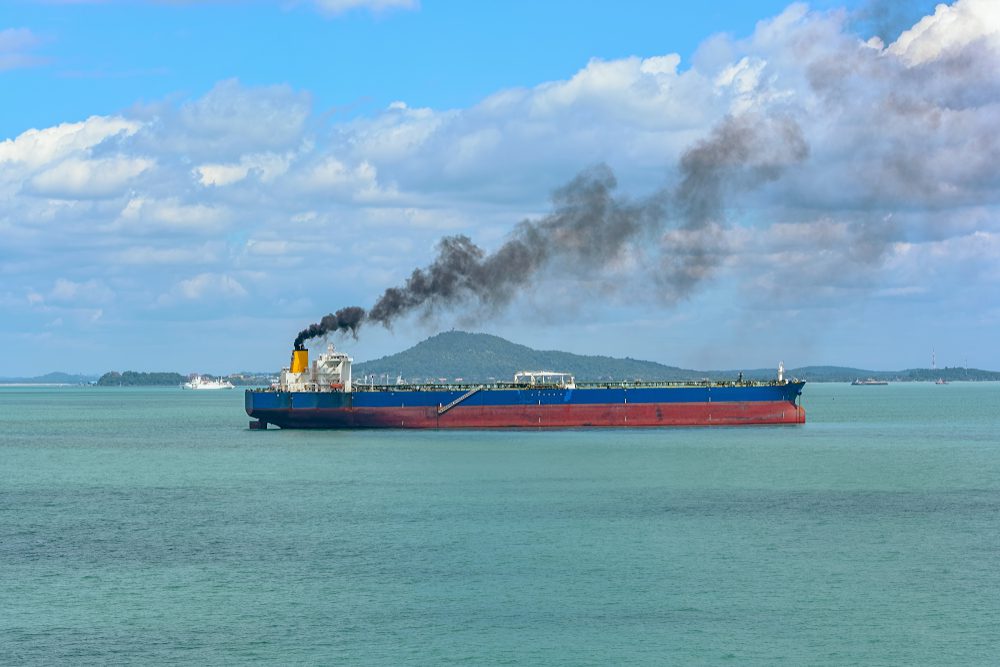Asia Refiners Test the Waters with Exports of IMO 2020-Compliant Fuel - 5 minutes read
 Asia Refiners Test the Waters with Exports of IMO 2020-Compliant Fuel – gCaptain
Asia Refiners Test the Waters with Exports of IMO 2020-Compliant Fuel – gCaptainBy Jane Chung and Florence Tan SEOUL/SINGAPORE, July 16 (Reuters) – Refineries in Taiwan and South Korea are testing the market for fuels that meet new rules for low-sulphur ship fuel starting next year, exporting some cargoes of very low-sulphur fuel oil (VLSFO) this month.
Oil market participants are uncertain what kind of fuel product shipping companies will use to meet the International Maritime Organization’s (IMO) 0.5% sulphur standard for ship fuels starting in 2020. The VLSFO shipments demonstrate that this type of fuel is a viable option that refineries could readily market.
The refiners in Taiwan and South Korea have redirected low-sulphur feedstocks, that would normally undergo further refining into gasoline, toward making the VLSFO, with 0.5% or less sulphur content, as a result of recent low profits for gasoline and to test their ability to produce the fuel.
One refining official based in Seoul said their plant primarily runs high-sulphur crude oil so they take the fuel oil produced after initial refining and remove the sulphur through a residue desulphurization process. Instead of passing the feedstock through a residue fluid catalytic cracker (RFCC) to make gasoline, they are selling it as VLSFO.
He declined to be named as he is not authorized to speak to the media.
This would “reduce gasoline output while increasing LSFO output so the gasoline market could recover,” the official said.
Taiwan’s Formosa Petrochemical, South Korea’s GS Caltex, S-Oil Corp and Hyundai Oilbank Corp have sold VLSFO cargoes since June, Reuters has reported.
More VLSFO supply could offset demand for marine gasoil (MGO), a more expensive alternative that is being considered by shippers.
Consultancy Energy Aspects said in a report that the “growing VLSFO production provides a threat to diesel demand in 2020 and provides a floor to Asian gasoline markets as more FCCs trim runs to free up VGO to be blended into VLSFO.”
Formosa has sold two July cargoes, their first exports of VLSFO in at least a decade, in a pre-marketing effort, company spokesman K.Y. Lin said.
“We’ll see how big the market can be,” he said, adding that the company also plans to supply VLSFO to tankers calling at its refinery in Mailiao, Taiwan.
GS Caltex sold three VLSFO cargoes for July to September delivery and the company’s spokesman said it plans to increase supplies by replacing fuel oil used at their refineries for power generation with liquefied natural gas (LNG).
However, gasoline margins have rebounded this month, reducing the incentive for refiners to switch production.
“Gasoline and fuel oil margins aren’t that far apart,” Formosa’s Lin said, adding that gasoline prices are still higher at more than $600 a tonne versus VLSFO at $500-$520 per tonne against the cost of Dubai crude at $450 a tonne.
He added that refiners also have to assess the value of the basket of products produced from an RFCC which includes gasoline, liquefied petroleum gas, propylene and light cycle oil.
Furthermore, shipowners have the choice of using either LSFO or MGO to comply with IMO’s mandate, making it harder for refiners to decide which fuel to produce.
“People in the bunkering business need to store either of VLSFO, MGO, or HSFO. Shipowners have a choice among these three kinds of fuels and not necessarily only VLSFO,” a Seoul-based fuel trader said.
(Reporting by Jane Chung in SEOUL, Florence Tan and Roslan Khasawaneh in SINGAPORE; Additional reporting by Yuka Obayashi in TOKYO, Jessica Jaganathan, Chen Aizhu and Koustav Samanta in SINGAPORE; editing by Christian Schmollinger)
Source: Gcaptain.com
Powered by NewsAPI.org
Keywords:
Asia • Export • International Maritime Organization • Fuel • Florence Tan • Seoul • Singapore • Reuters • Oil refinery • Taiwan • South Korea • Sulfur • Sulfur • Fuel oil • Freight transport • Company • International Maritime Organization • International Maritime Organization • Sulfur • Ship • Fuel • Fuel • Environmental economics • Oil refinery • Taiwan • South Korea • Sulfur • Raw material • Gasoline • Sulfur • Gasoline • Fuel • Oil refinery • Seoul • Sulfur • Petroleum • Fuel oil • Oil refinery • Sulfur • Desulfurisation • Chemical process • Raw material • Fluid catalytic cracking • Gasoline • Gasoline • Gross domestic product • Gross domestic product • Gasoline • Market (economics) • Taiwan • Taiwan • Petrochemical • South Korea • GS Caltex • S-Oil • Hyundai Oilbank • Reuters • Ocean • Freight transport • Energy • Diesel fuel • Asian Americans • Gasoline • Vgo (stonemason) • Taiwan • Oil refinery • Mailiao • Taiwan • GS Caltex • Fuel oil • Refinery • Electricity generation • Liquefied natural gas • Liquefied natural gas • Gasoline • Refinery • Manufacturing • Gasoline • Fuel oil • Taiwan • Gasoline • Shorland S600 • Tonne • S-Series (rocket family) • Tonne • Dubai Crude • Tonne • Gasoline • Liquefied petroleum gas • Propene • Tron (franchise) • Magnesium oxide • International Maritime Organization • Fuel • Fuel oil • Seoul • Seoul • Florence Tan • Singapore • Tokyo • Singapore •